Glory. Interesting word. What does it mean?
“Christ in you, the hope of glory,” the apostle Paul said. (Col. 1:27) That’s how he described God’s great mystery, the hope (confident expectation of future success) of glory – Christ in you.
We know that when someone accepts Jesus Christ as savior and Lord, Christ actually begins to live inside that person. He is in Christ and Christ is in him.
But what is glory?
To me, the simplest explanation of glory is “proof of identity.” God’s glory is an attribute only God has. When you see it, you know that’s God.
In the original Bible languages, glory means brilliance, splendor, radiance, magnificence, such as we see in stars shining. It also means honor, majesty, a good reputation, even fine clothing and jewelry.
There are a number of Old Testament Hebrew words translated glory:
H3519 = kabowd (ka – vode); noun; honour, splendor, reverence, abundance, riches, reputation. From primary root for heaviness, always used figuratively. It occurs 200 times in 189 verses in the O.T., the most used. The idea of brilliance, splendor and radiance is primary in many verses, such as:
2 Chr. 5:14: “So that the priests could not stand to minister by reason of the cloud: for the glory of the LORD had filled the house of God.”
2 Chr. 7:1: “Now when Solomon had made an end of praying, the fire came down from heaven, and consumed the burnt offering and the sacrifices; and the glory of the LORD filled the house.”
H1926 = hadar (ha-dar); noun; ornament, adorning, goodliness, decoration; splendor, excellency, comeliness, beauty, honor, majesty.
H8597 = tipharah (tif-a-ra); noun; beauty, splendor, finery of garments or jewels, renown, fair, bravery, comely, excellent. It is used to describe the Ark of the Covenant in Ps. 78:61.
H1939 = howd (hode); noun; splendor, majesty, vigor; to become lofty, as in Ps. 3:3: “But thou, O LORD, art a shield for me, my glory and the lifter up of mine head.”
H3513 – kavad (ka-vad); verb form of kabowd; to be heavy, weighty, grievous, burdensome, to be hard (able to bear up under anything); rich, honourable, glorious, to be honored.
H6286 = paar (pa-ar); verb; to glorify, beautify, adorn. To be proud, vaunt yourself, boast.
H7623 = shabach (sha-vakh); verb; to soothe, still, stroke (as water in swimming); to laud, praise, commend, congratulate, boast, triumph.
New Testament Greek words translated glory are very similar in meaning. The primary one is doxa.
G1391 = doxa (do’-ksä); noun; honor, praise, dignity, worship; a good opinion concerning one, resulting in praise, honor, and glory; splendor, brightness of the moon, sun, stars; magnificence, excellence, preeminence, dignity, grace; majesty; a most glorious condition, most exalted state.
Here are several examples where glory means brilliance, radiance or splendor:
Luke 2:9: “And, lo, the angel of the Lord came upon them, and the glory of the Lord shone round about them: and they were sore afraid.”
Luke 9:32: “But Peter and they that were with him were heavy with sleep: and when they were awake, they saw his glory, and the two men that stood with him.” Matt. 17:2 says that Jesus “was transfigured before them: and his face did shine as the sun, and his raiment was white as the light.”
Here’s an example with a different meaning:
John 2:11: “This beginning of miracles did Jesus in Cana of Galilee, and manifested forth his glory; and his disciples believed on him.”
Jesus’ face didn’t shine brilliantly in Cana as on the Mount of Transfiguration; he demonstrated his identity by the miracle of turning water into wine for a wedding feast. The result? The disciples believed on him.
Whenever Jesus traveled back and forth across Galillee, Judea, Lebanon, Syria, or Jordan, this is what he did. He demonstrated his identity as God. Creator of the universe, he easily created some things that had not been there and changed the nature of other things.
He appeared and disappeared at will, easily escaping from the hands of the Pharisees when he wanted to. He commanded and changed the weather. He suspended the laws of physics to allow Peter to join Jesus in a walk across the waters of Galilee.
Whatever he did, where and when he did it, was to glorify his father God. (John 17:4) It was to prove his own identity, and the identity of the one who had commissioned him. That was one of his critical assignments.
And then he stated, “The glory which thou gavest me, I have given them…” (John 17:22) What glory had he given them? A brilliant appearance? No.
He gave them the assignment and the ability to carry it out, to do the same things he had been doing, healing, miracles, thereby proving the identity of Jesus as the son of God, as God himself.
He was getting reading to leave them. But he would send the Holy Spirit to the believers to continue that activity – “He shall glorify me; for he shall receive of mine and shall show it unto you.” (John 16:14)
That is what it means, “Christ in you, the hope of glory.” Future glory in heaven, certainly, but present glory also. The guarantee, the confident expectation that God’s glory will be demonstrated by believers. Proof of Jesus’ identity, demonstrated by the actions of those the Holy Spirit indwells.
Doing things any ordinary human can do will not prove the identity of Jesus.




 I was just wondering what the Lord was up to this evening, wondering if maybe he’d like for me to do something different from what I was doing (reading stuff online), like pray, study, or what… when he said, “I’m tinkering around the edges.” Huh?
I was just wondering what the Lord was up to this evening, wondering if maybe he’d like for me to do something different from what I was doing (reading stuff online), like pray, study, or what… when he said, “I’m tinkering around the edges.” Huh?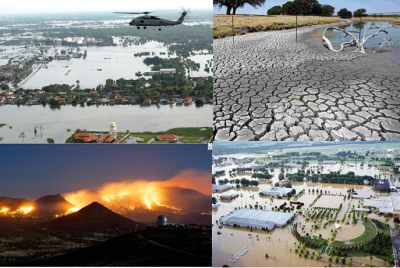

 I’m hearing a sound in my spirit these days. Are you hearing it too?
I’m hearing a sound in my spirit these days. Are you hearing it too? I watched an Evangelist Nathan Morris (
I watched an Evangelist Nathan Morris (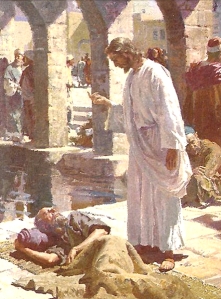
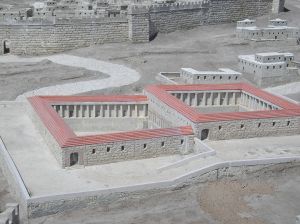
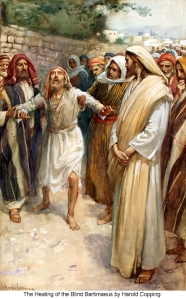
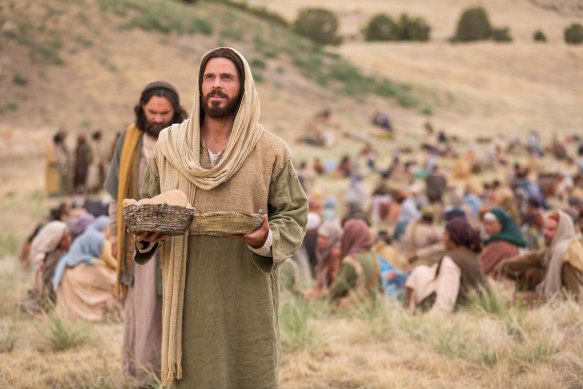 Everywhere Jesus went, people followed him. Lots of people. Even up a mountain.
Everywhere Jesus went, people followed him. Lots of people. Even up a mountain.